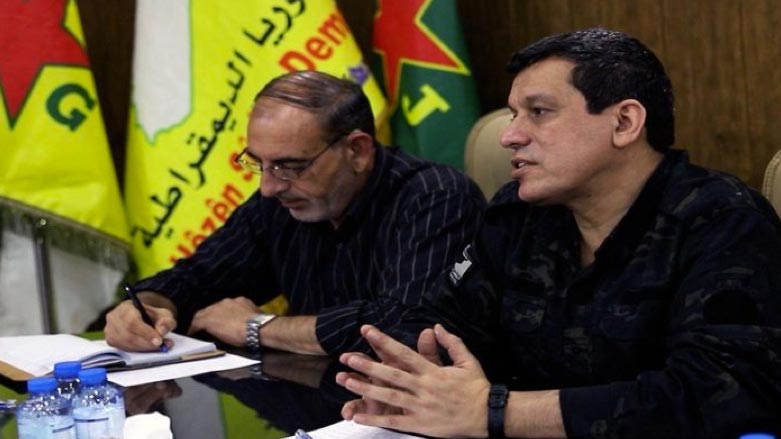SDF leaders warn against normalization between Damascus and Ankara

ERBIL (Kurdistan 24) – Leaders of the Syrian Democratic Forces (SDF) on Tuesday warned against a possible normalization of ties between Damascus and Ankara.
The SDF Military Council on Tuesday held its periodic meeting attended by Commander-in-Chief Mazloum Abdi, along with leaders of its military councils and factions.
“The meeting emphasized that attempts to initiate a normalization process between the Syrian government and the Turkish regime are merely a new beginning to worsen the humanitarian and political situation in Syria,” the SDF leadership said in a statement.
It warned that any Syrian endeavors to align with the Turkish government’s agenda against the Autonomous Administration in northern and eastern Syria (AANES) will lead to adverse consequences for all regions in Syria and impede the future resolution of the Syrian crisis.
Turkish President Recep Tayyip Erdogan on Monday said he is open to talks with Syrian President Bashar al-Assad, but underlined he would not withdraw Turkish troops, a central demand of Syria to talks with Turkey.
Since 2021, Russia has made efforts to reconcile Turkey and Syria, but these attempts have not been successful in bringing Ankara and Damascus closer. One of the few common grounds between the two countries is their opposition to US support for Syria's Kurds and the SDF.
In June 2023, Turkey, Russia, Iran, and Syria came together for the twentieth High-Level Meeting on Syria in Astana, Kazakhstan. During the meeting, they jointly condemned the violations of the ‘separatist structure in northeast Syria’ and expressed their concerns about ‘countries supporting terrorist groups,’ indirectly referring to the United States.
The SDF leadership in the meeting also emphasized the need to “enhance coordination with the Russian forces in the western Euphrates region to act as a guarantor in preventing further escalation” amidst increasing Turkish drone and artillery strikes.
Moreover, the meeting discussed efforts by Syrian-government backed actors trying to create instability in the region.
Lastly, the meeting highlighted the importance of continuing work with the US-led coalition “to curtail ISIS’ potential resurgence and prevent ISIS from exploiting the current circumstances.”
